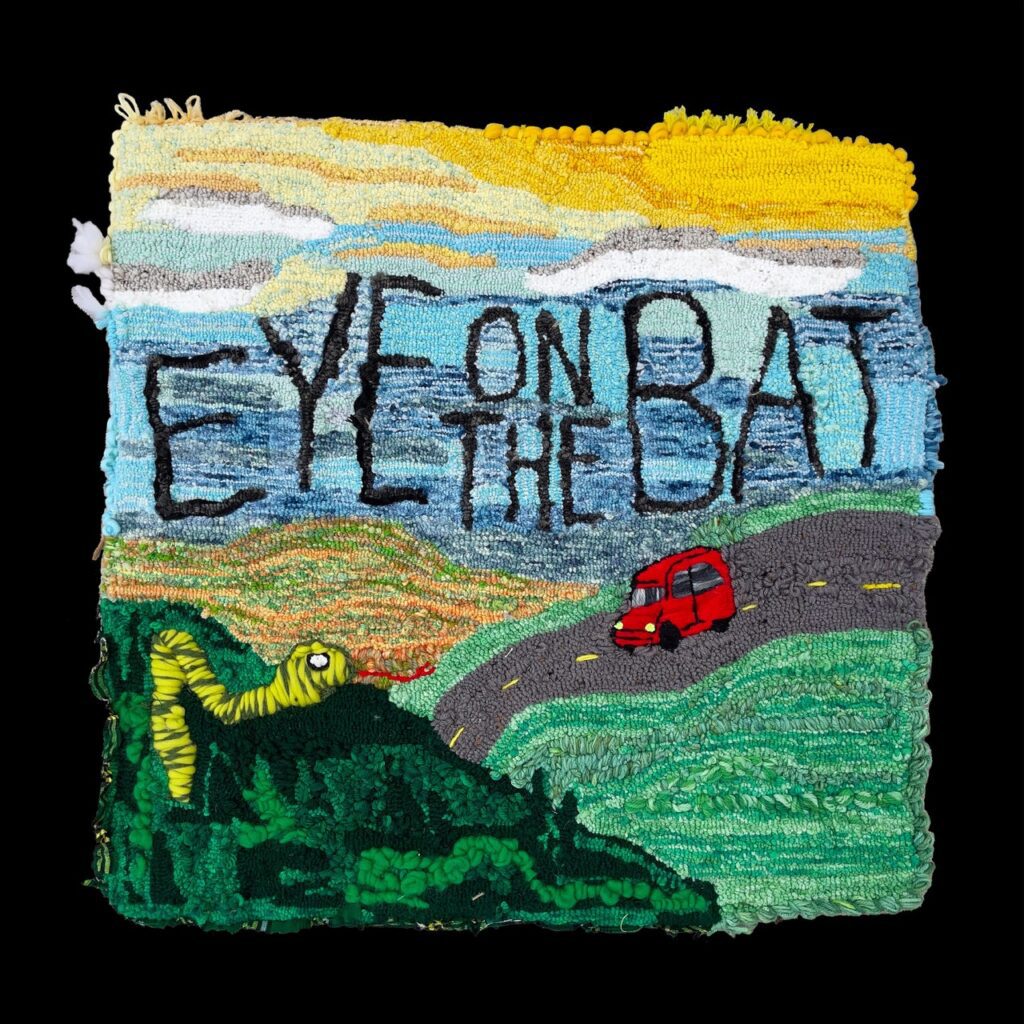Eye on the Bat is a defiant ode to being humbled. Life will do that, particularly during a breakup, and El Kempner’s incisive, diaristic lyrics are like coming up from a dive without your swim trunks. On Palehound’s fourth album, Kempner reveals all the tender facets of a split in evocative detail: regret, embarrassment, desperation. The band accompanies these thoughts with sinuous guitar riffs and driving bass lines, turning Kempner’s words into incantations, the sort of shout-sing anthems that beg to be replayed.
Kempner has outright declared Eye on the Bat a breakup record, and the imagery places us right at the center of the conflict, reliving the dissolution with painful exactitude. “Wind turbines and overpasses/Thirteen hours on our asses,” they sing on the title track, remembering cold sandwiches assembled from the trunk and puddles of piss behind the van. Romance dies but the memories refuse to, a specific kind of haunting you can hear in every forlorn vocal. “You didn’t need my help/You didn’t need my help,” Kempner repeats over Zoë Brecher’s raging cymbal crashes and the reverberating guitar chords on “The Clutch,” one of the record’s standouts. It’s easy to imagine them shouting it at a retreating car, livid in the rearview mirror.
Kempner’s conversational tone and deadpan delivery recall both Forth Wanderers and Aimee Mann, sometimes droll (“Bad Sex”) and sometimes smoky and melodic, a little exhausted (“Right About You”). The instrumentation—urgent and vital, more punk than plaintive—makes emphatic what might otherwise be subtle, heightening the emotional stakes, whether it’s the throbbing bassline of “The Clutch” or the anxious riff that jumpstarts “Independence Day.” In stark contrast to the icy silence of a long, pre-breakup car ride like the one in the title track, Eye on the Bat’s best songs are incendiary, kinetic, and restless. Things are always threatening to explode, like a shaken Coke bottle rattling around the passenger’s floorboard.
The momentum falters when the tempo slows and the rage turns contemplative, anger ceding to wistfulness. “Head Like Soup” is a goofy tonal pivot, with juvenile lyrics (“My head like a pot of thick soup/Stirred and tasted/I live to fill you up”) and skittering rhythms that can’t salvage the sluggish melody. Meanwhile closer “Fadin” might allude to Mazzy Star (“There’s nothin’ I can do to keep from fadin’ to you”) but its abstruse imagery and campfire strum skews more Moldy Peaches.
Still, Kempner’s songwriting is far from one-note, and the record’s winsome bombast finds the perfect foil in introspective details, moments of time trapped between the bars. “Right About You” slogs through the moments when the end becomes obvious, signs of doom peppered all around a Northern California beach town. “We came down here to see the sunset,” Kempner laments, “But we’re in a bad spot and I can’t see it,” an obscured vista as a metaphor for the closed-off potential of love. “Route 22” is a tender, strummed ballad, its tentative optimism highlighted and underpinned by doubt (“Would you mind if I get stoned?/Don’t wanna bore you with my teenage habits”).
The universe has a way of roasting us at every turn. There’s the everyday awkwardness, the odd fit of a corset on “Good Sex,” and then there’s unrequited love like an ember in your chest, the constant reminder that you are always, existentially speaking, alone. In “Good Sex,” Kempner takes a disembodied perspective to describe a bumbling attempt at seduction: “I started laughing at myself,” they sing, huffing out a genuine chuckle a few bars later. Eye on the Bat shows up unglamorously, and it’s this candor and humanity that proves most charming, a dispatch from love’s treacherous backroads.
All products featured on Pitchfork are independently selected by our editors. However, when you buy something through our retail links, we may earn an affiliate commission.

